Electric Heaters: Varieties, Elements, Advantages, And More!

Are you looking for electric heaters? If yes, you might be wondering how it works and what are the things that you should consider before buying one.
You might also be considering the different types of electric heaters that are there and how to install one. Well, there is no need for you to worry. Look no further as in this article I will be talking about exactly what you need.
There are a lot of things that people try to keep in mind while they make home secure and comfy. And these heaters are definitely one of them. So, keep reading this blog till the end to learn more…
What Are Electric Heaters?
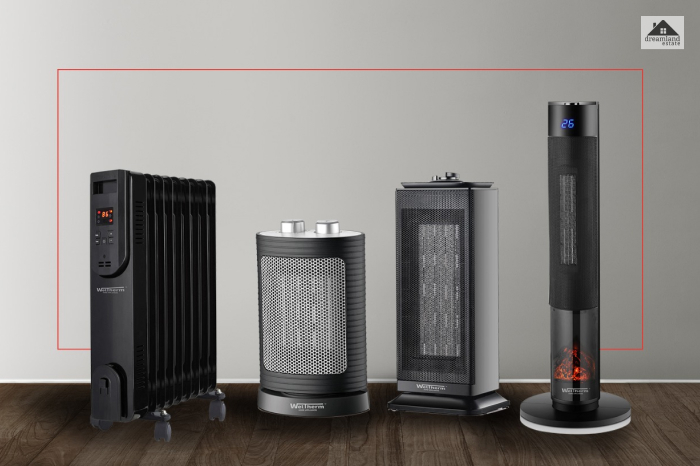
Electric heaters are devices that convert electrical energy into heat energy to provide warmth in indoor spaces or for specific applications. They are commonly used in residential, commercial, and industrial settings as a primary or supplementary heating source. Electric heaters come in various sizes, shapes, and types to suit different needs.
Electric heaters are generally easy to use, portable, and require minimal installation. They are typically powered by a standard electrical outlet and offer control options such as thermostats, timers, and different heat settings. Safety features like tip-over switches and overheat protection are also common in electric heaters to prevent accidents.
Read More: What Is a Heat Pump and How Does It Operate? – Lets Find Out
What Are The Common Uses Of Electric Heaters?
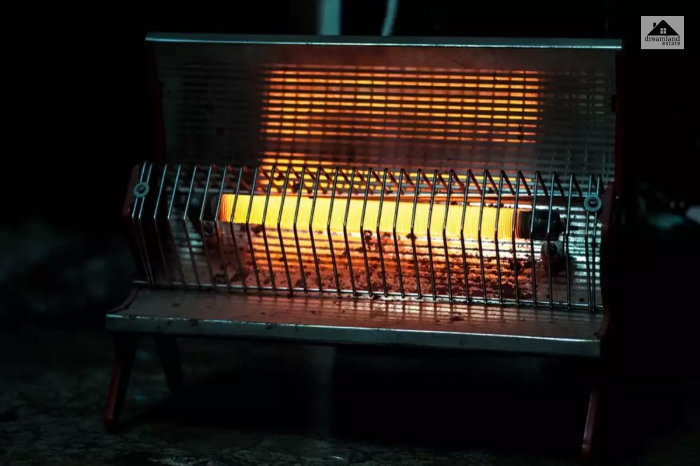
Electric heaters have a wide range of uses and can be found in various settings.
These heaters offer versatility, convenience, and portability, allowing them to be used in a wide range of settings and situations. However, it’s important to consider the specific requirements of each application and choose an electric heater that is suitable in terms of size, heating capacity, safety features, and energy efficiency.
Here are some common uses of electric heaters:
1. Residential Heating
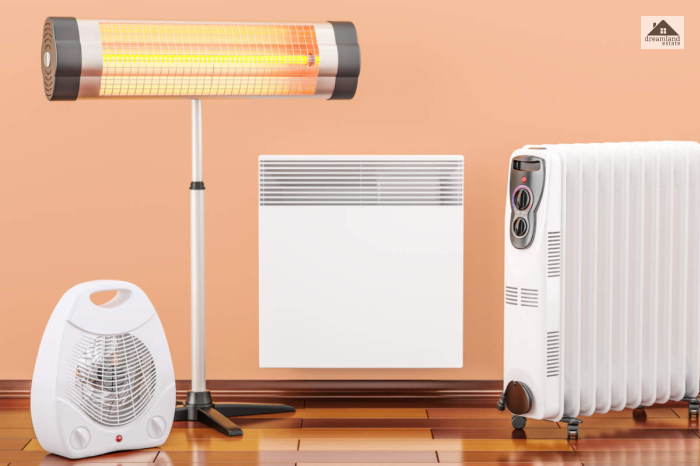
Electric heaters are commonly used in homes to provide additional warmth in specific rooms or as a primary heating source. They are used to heat bedrooms, living rooms, bathrooms, basements, and other areas where central heating may not be sufficient or economical.
2. Office And Commercial Spaces
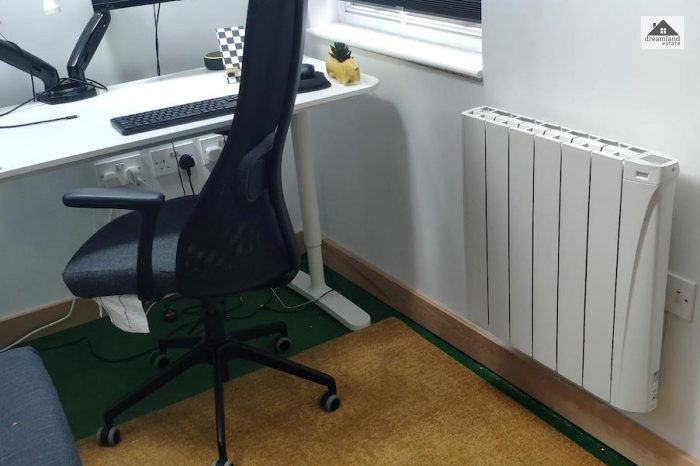
Electric heaters are often employed in offices, shops, restaurants, and other commercial establishments to provide localized heating in specific areas or to supplement the existing heating system. They can be used to keep employees, customers, or visitors comfortable in colder environments.
3. Industrial Applications
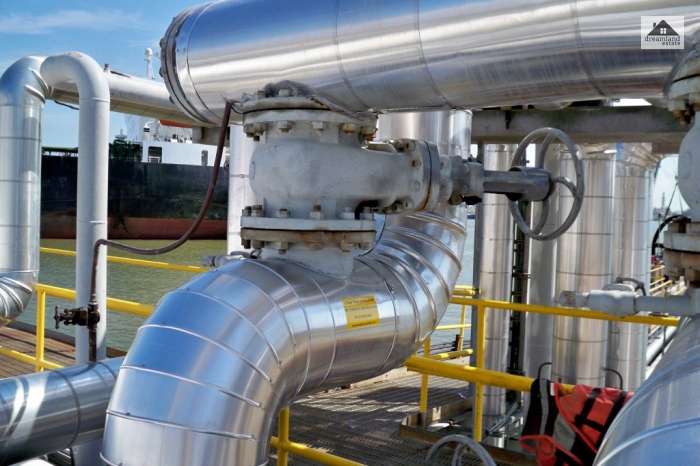
Electric heaters find applications in various industrial settings. They can be used to heat warehouses, factories, workshops, and other industrial spaces where maintaining a suitable temperature is crucial for equipment, processes, or worker comfort.
4. Outdoor Heating
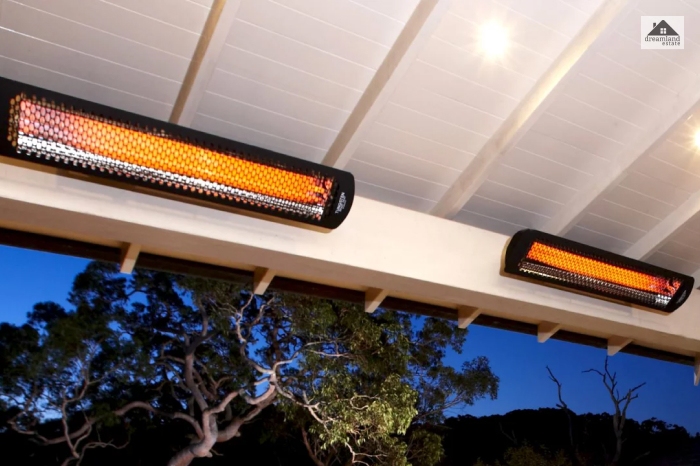
Some electric heaters are designed for outdoor use, such as patio heaters or outdoor space heaters. These heaters allow people to enjoy outdoor spaces during colder seasons or evenings by providing localized heat.
5. Emergency Heating
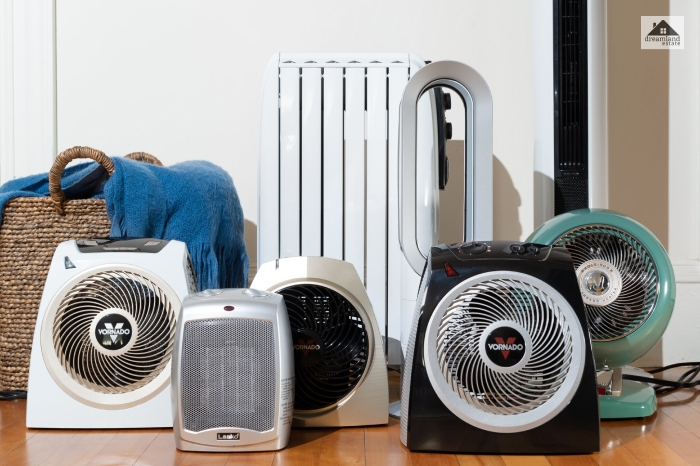
Electric heaters can serve as temporary or emergency heating solutions in situations where the primary heating system has failed or during power outages. Portable electric heaters can provide immediate heat in such cases, helping to maintain a comfortable environment.
6. Specialty Application
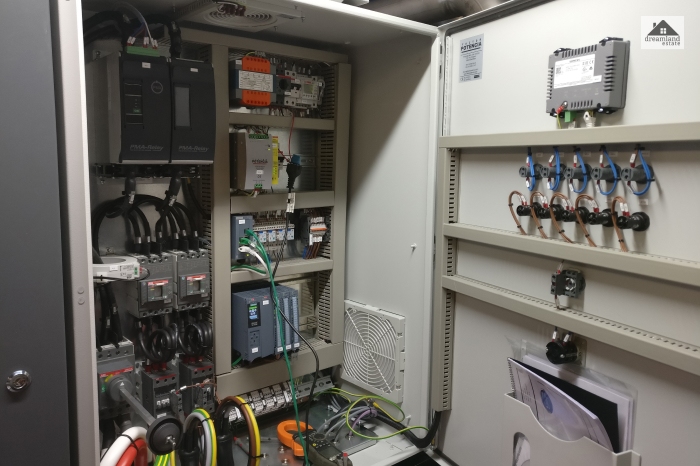
Electric heaters are used in specific applications like incubators, terrariums, pet enclosures, and greenhouses to provide controlled heating for plants, animals, or specialized environments.
Read More: Electric Baseboard Heaters: Everything You Need To Know
How Does Electric Heaters Work?

Electric heaters work by converting electrical energy into heat energy through various mechanisms. The exact working principle depends on the type of electric heater. However, here is a general overview of how electric heaters operate:
1. Heating Element
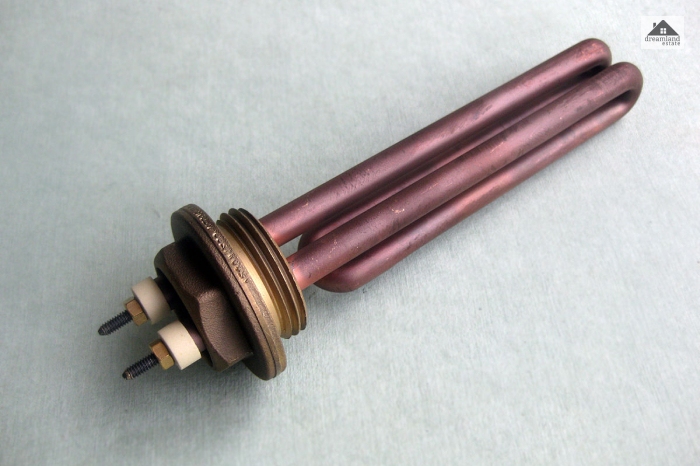
Electric heaters have a heating element, which is a resistor made of a material that has high electrical resistance. When an electric current flows through this element, it encounters resistance, generating heat. The heating element is usually made of materials like nichrome (a nickel-chromium alloy) or ceramic.
2. Power Supply
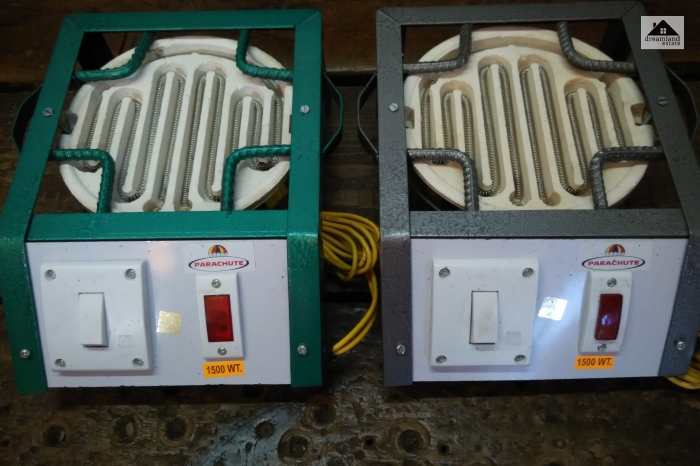
Electric heaters are connected to a power supply, typically a standard electrical outlet. The electrical current from the power supply flows through the heating element.
3. Conversion of Electrical Energy to Heat

As the electric current passes through the heating element, it encounters resistance, causing the electrons to collide with atoms in the material. This collision generates heat, and the temperature of the heating element rises.
4. Heat Distribution

The generated heat is then transferred to the surrounding air or objects, depending on the type of electric heater. Convection heaters rely on natural air circulation to distribute the warm air throughout the room. Radiant heaters emit infrared radiation that directly heats objects and people in their path. Fan-forced heaters blow air over the heating element, rapidly distributing warm air. Oil-filled heaters heat the oil inside, which then radiates heat into the room.
5. Temperature Control
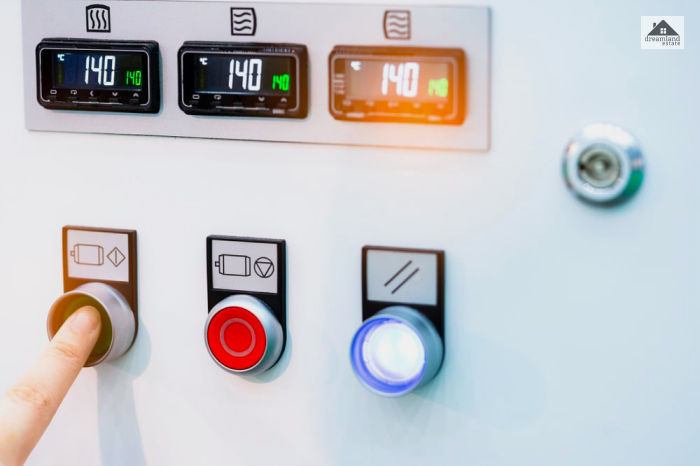
Many electric heaters are equipped with temperature control features such as thermostats. A thermostat monitors the ambient temperature and controls the heater’s operation to maintain the desired temperature. When the temperature drops below the set level, the thermostat signals the heater to turn on. Once the temperature reaches the desired level, the thermostat signals the heater to turn off.
6. Safety Features
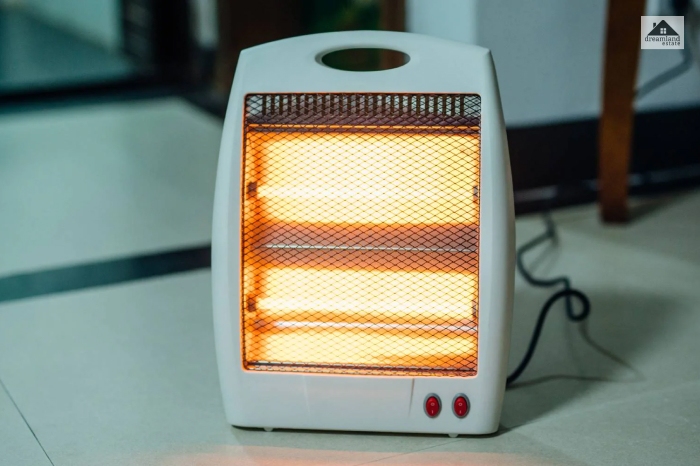
Electric heaters often include safety features to prevent accidents. These may include overheat protection, which automatically shuts off the heater if it reaches a certain temperature, and tip-over switches that turn off the heater if it is accidentally knocked over.
By efficiently converting electrical energy into heat, electric heaters provide warmth for indoor spaces or specific applications, helping to create a comfortable environment.
Read More: Wood Burning Stove : Origin, Uses And Maintenance
What Are The Different Types Of Electric Heaters?
Now that you know about what electric heaters are and how they operate, it is time fir you to learn about yet another thing— the types of electric heaters.
Here are some common types of electric heaters:
1. Convection Heaters
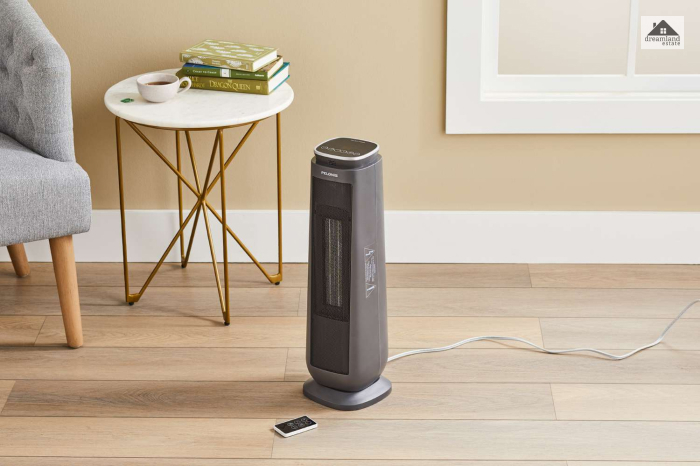
These heaters warm the air by passing it over a heated element and rely on natural air circulation to distribute the heat throughout the room. They are generally quiet and provide consistent heat.
2. Radiant Heaters
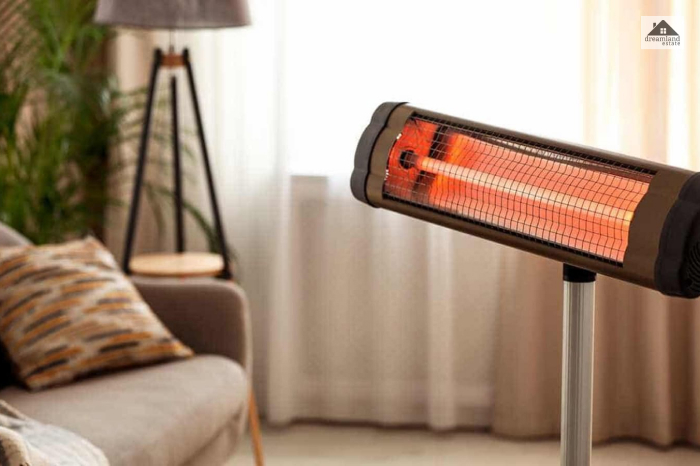
Radiant heaters use infrared radiation to directly heat objects and people in their vicinity. They emit heat in the form of electromagnetic waves, which are absorbed by objects, converting into warmth. Radiant heaters are quick to heat but primarily warm the objects in their path rather than the entire room.
3. Fan-forced Heaters

These heaters incorporate a fan to blow air over a heating element, rapidly distributing warm air into the room. They are effective in quickly heating up a space but can be a bit noisier compared to other types.
4. Oil-Filled Heaters
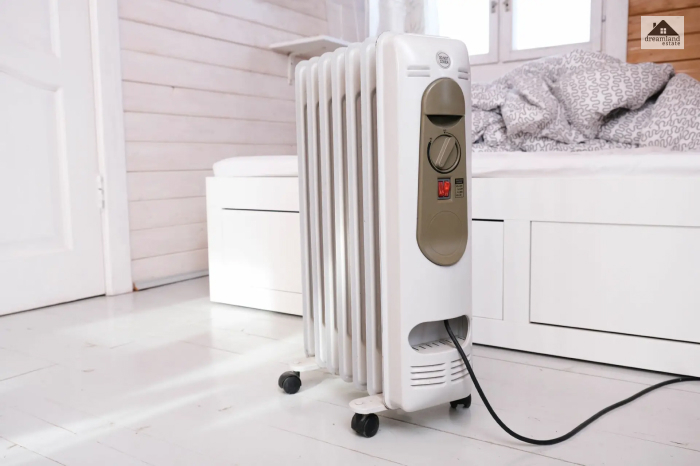
Oil-filled heaters contain diathermic oil, which is heated by an internal heating element. The oil retains heat and continues to radiate warmth even after the heater is turned off. They provide a slow and steady heating effect and are often used for longer periods.
5. Ceramic Heaters
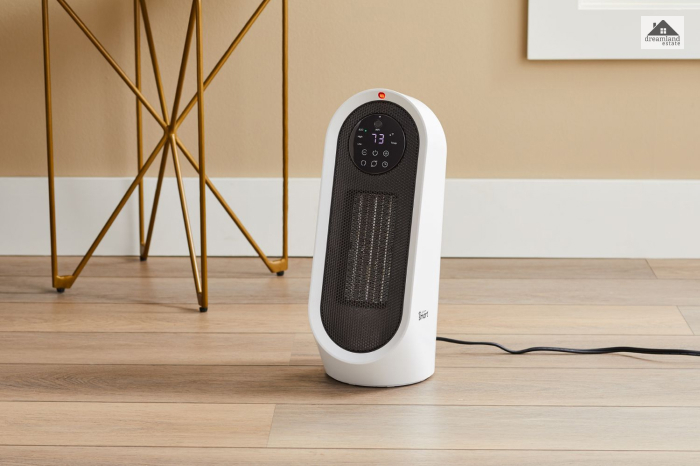
Ceramic heaters use ceramic heating elements that heat quickly and provide even heat distribution. They are known for their energy saving and efficiency and safety features like overheating protection.
6. Coil Heaters
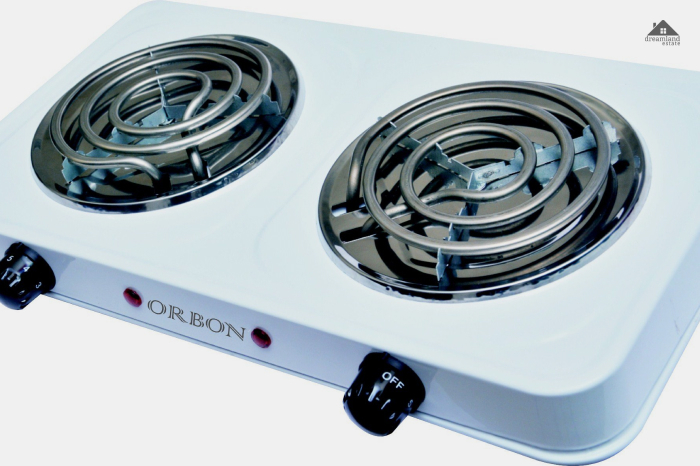
You must have seen people using electric water heaters. Well, these are a kind of coil heaters. Also known as acne heaters, they are made from uncoiled parts of tubular heating elements. They have non-metallic sheath that is insulated which protects the product from overheating.
7. Space Heaters
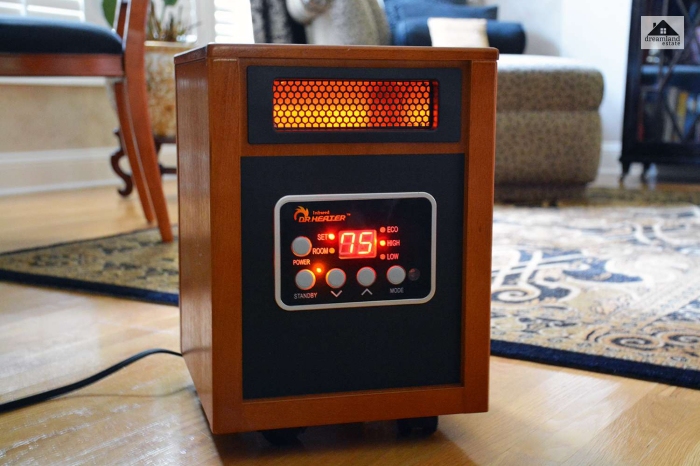
While this fall under the category of ceramic or oil filled heaters, this one has a following of its own. Most popular among these are the fan heaters. These can heat up a single to medium sized area and are in stark contrast to central heating. If you want to know how long can electric space heaters be left on, the answer is for a protracted time. In most cases of upscale heaters, they can be left on for a minimum of 10 hours.
What Is Good And What Is Not?

Before you leave it is important that you learn about something important— the pros and cons of having an electric heater!
Yes, that is right!
Everything that you see around you has a mix of good and bad in them. And the electrical heater is no exception to that. While there can be a lot of reasons to choose electric heaters, there can be a lot of them not to choose one.
Keep reading to learn about the good parts and the bad parts of the heaters:
Advantages
- Efficiency: Electric heaters are generally considered highly efficient because they convert almost all the electrical energy into heat. There is minimal energy wastage in the conversion process.
- Convenience: Electric heaters are easy to use and require minimal installation. They can be plugged into a standard electrical outlet, making them accessible for immediate use. Portable electric heaters provide flexibility to move them between different rooms or locations.
- Safety: Electric heaters often come with built-in safety features like overheat protection and tip-over switches. These features help prevent accidents and ensure safe operation.
- Clean and Odorless: Electric heaters do not burn fuel or produce combustion byproducts, making them clean and odorless. There are no emissions of harmful gasses, such as carbon monoxide, which is a concern with some other types of heaters.
- Control Options: Many electric heaters come with control options, such as thermostats and programmable timers. These features allow users to set desired temperatures and control heating schedules, optimizing energy usage and providing customized comfort.
Read More: Solar Heating : Definition, Techniques, Advantages And More
Disadvantages
- Higher Operating Costs: Electric heaters can have higher operating costs compared to other heating methods, particularly if electricity rates are high. The cost of electricity can vary depending on the region, making it important to consider energy efficiency and usage patterns.
- Limited Heating Capacity: Electric heaters may have limited heating capacity compared to other heating systems, such as gas furnaces. They may be more suitable for heating small to medium-sized spaces rather than large areas.
- Dependency on Electrical Supply: Electric heaters rely on a steady electrical supply to function. In the event of a power outage, they will not operate unless there is an alternative power source like a backup generator.
- Slower Heating: Electric heaters, especially convection heaters, can take some time to warm up a room compared to other heating methods. Radiant heaters can provide more immediate heat, but they primarily warm objects in their path rather than the entire room.
- Environmental Impact: While electric heaters themselves do not produce emissions, the electricity used to power them may come from fossil fuel power plants, which contribute to greenhouse gas emissions and environmental impact.
Read More: How Does A Hydronic Heating System Work, And What Are Its Benefits?
Frequently Asked Questions!! (FAQs) :
Now that you are aware of what electric heaters are, it is time for you to learn about the questions that people often ask about these heaters. So read this part of the blog before you leave!
Ans: No. That is the simple answer. It is not safe to leave your electric heater on all day. This is because it can cause a massive fire hazard. If you are not going to be home to monitor the heater, it can lead to overheating and start a fire.
Ans: Here are the top three best electric heaters for room:
• DeLonghi HMP1500 which is priced at $99.95
• Lasko 754200 which is priced at $43.99
• Honeywell HCE840B which is priced at $66.17
Ans: The most expensive electric heater is Dyson Hot. It costs around $399.99 dollars. This is about ten times the cost of a normal electric heater.
Read More: 10 Things About Boiler Heating Systems You Should Know
Wrapping It Up!
In today’s age of technology and science, electric heaters have become more common than anything. By efficiently converting electrical energy into heat, electric heaters provide warmth for indoor spaces or specific applications, helping to create a comfortable environment.
In case you were searching for information related to electric heaters, I hope that this blog has been of help to you. If there are any other queries related to the same, feel free to let me know. All that you need to do is scroll down till you reach the bottom of the page. Then leave your comments and suggestions in the comment box below. And I will be there to answer them all for you!
Read Also:











Leave A Reply